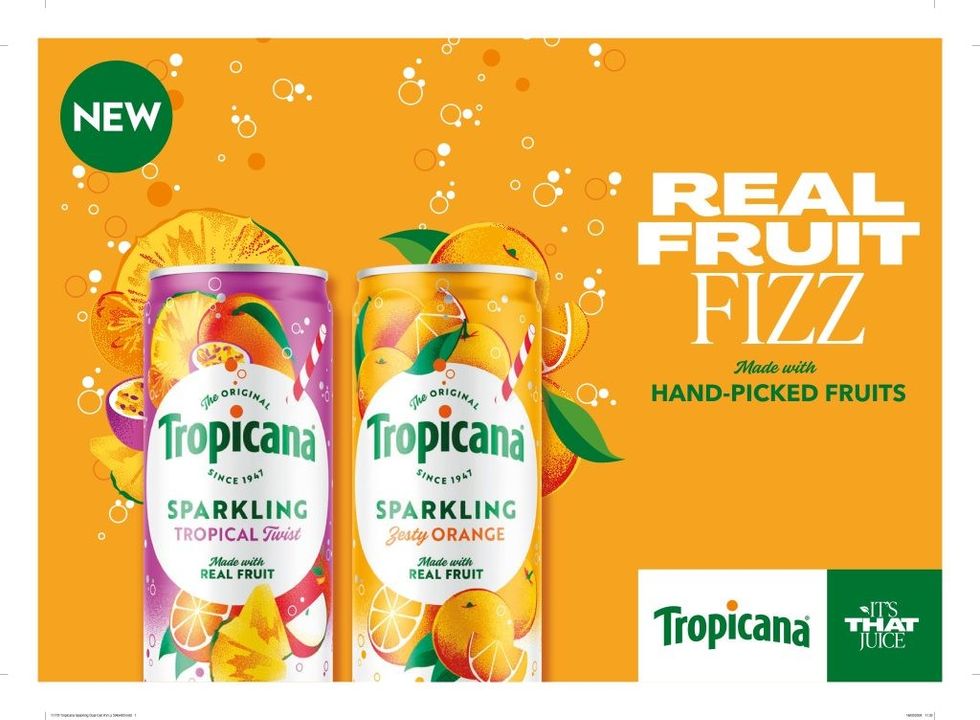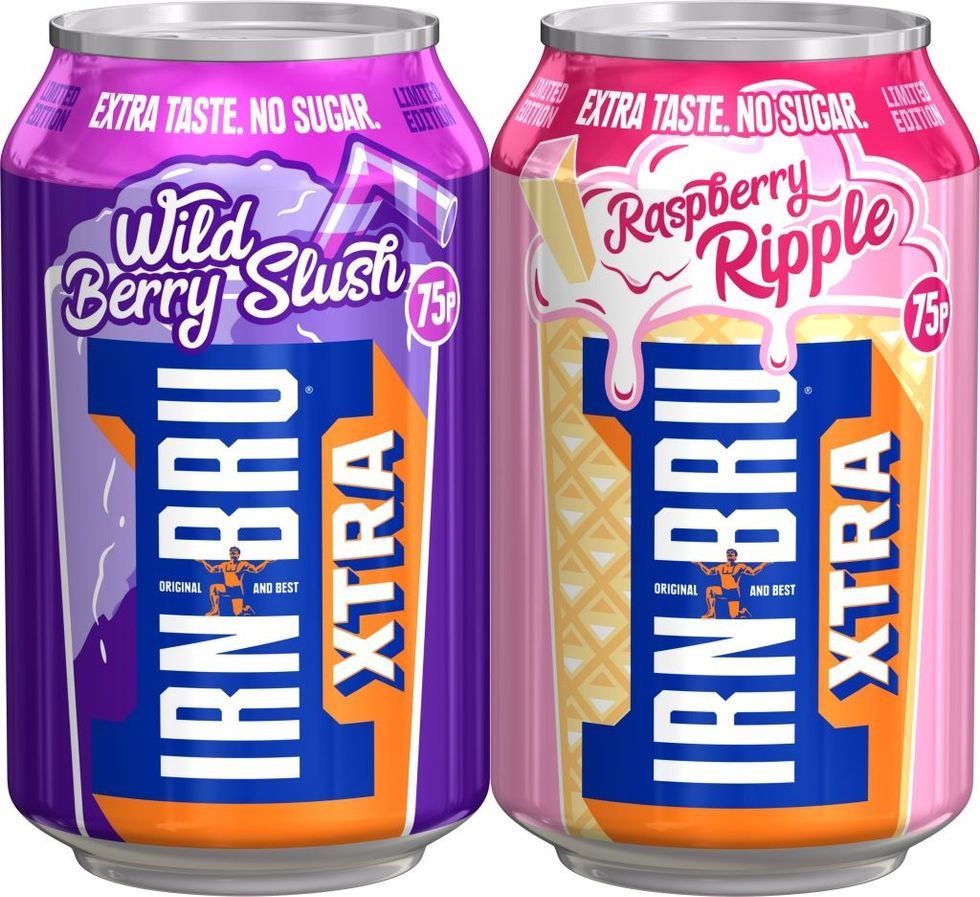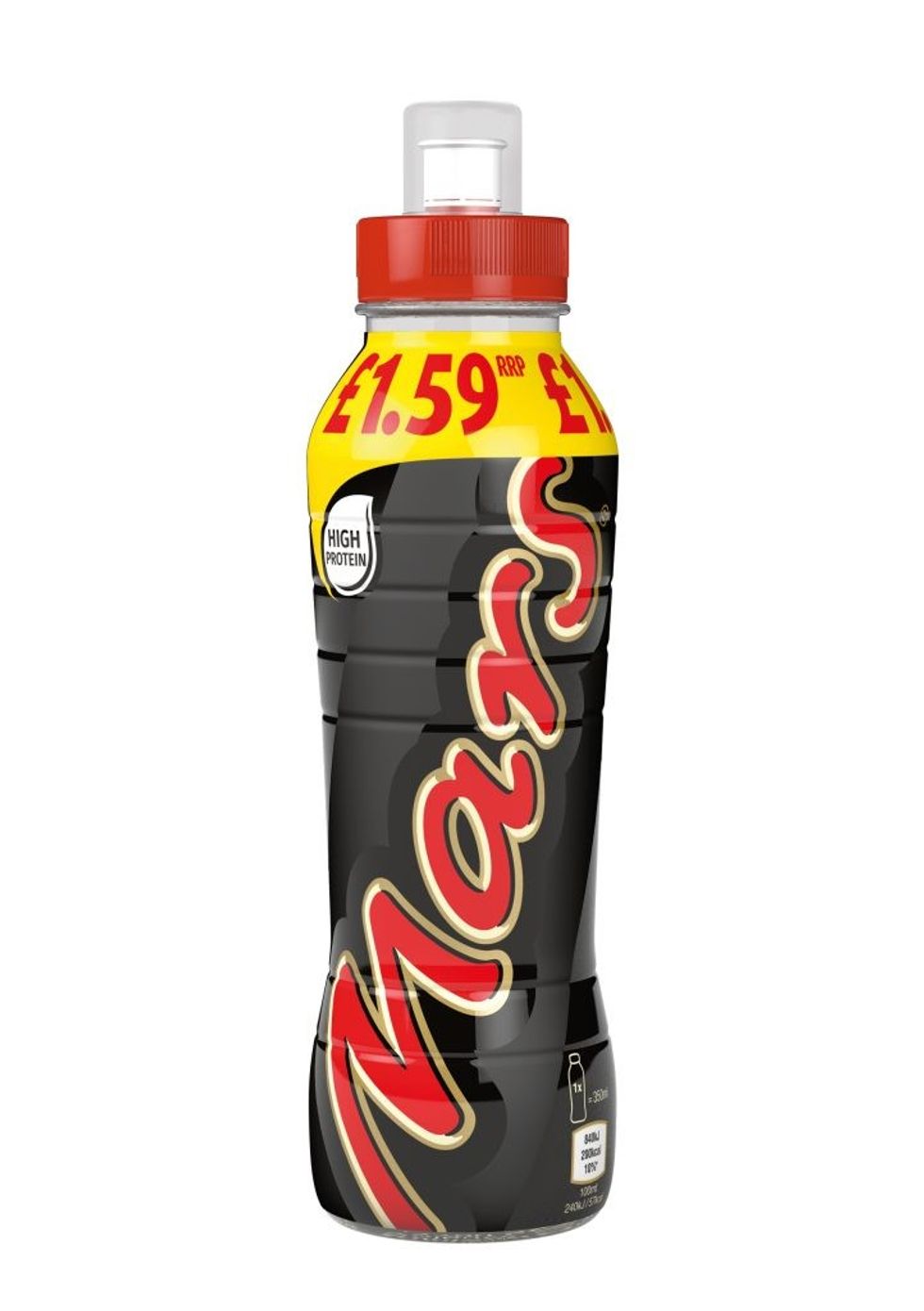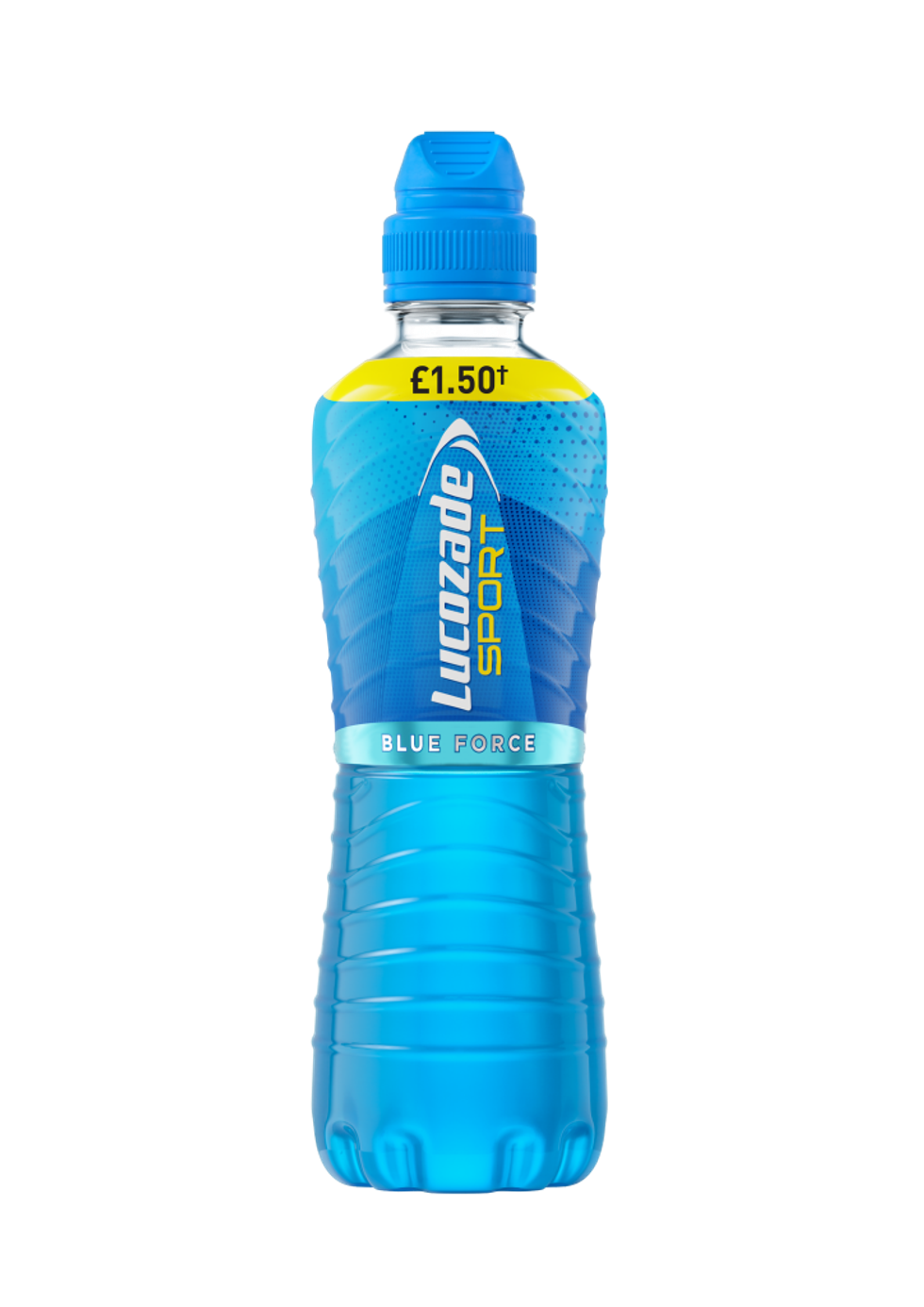It’s not debatable that we all love a glass of fizzy drinks. No wonder, the UK has one of the highest consumption rates of soft drinks in entire Europe.
The average Brit drinks the equivalent of 4.4 servings of fizzy pop per week, just a little shy of the Americans who drink 4.9 servings per week. Well, this habit works well for convenience stores as soft drinks tend to feature in nearly one in four (22.9 per cent) c-store shopping baskets.
With consumers increasingly looking for new ways to treat themselves during lockdown, the soft drinks category saw a move towards premiumisation. At the same time, energy became the fastest growing and biggest category in convenience as shopper demand for ‘pick-me-ups’ increasing day by day.
Soft drinks have always been important for the convenience channel, with such drinks featuring in nearly one in four (22.9 per cent) c-store shopping baskets. In2022, soft drinks put an extra £347.4m through the tills of c-store operators - more than the combined growth of beer, wine, spirits, confectionery, crisps, snacks, and nuts.
In fact, on-the-go soft drink occasions present a sales boost of £8,400 per year for each c-store operating in the UK today.
Wholesaler Bestway states that the soft drinks category within independents and symbol stores are worth £1.99bn, which is 20.5 per cent of the total market sales. And the good news is that the category is growing constantly.
Apart from sales, soft drinks are a huge footfall driver too. Almost one third (31 per cent) of convenience retailers say soft drinks drive more footfall in their stores than any other category.
Clearly, the opportunity that soft drinks create is huge and it’s important for retailers to make the most of the category.
Bottled water
Volvic has been the leading bottled water brand in UK convenience stores, generating sales of over £208m. Evian, Highland Spring, Glacéau and Macbare the next leading brands. Nestle’s Buxton, Pure Life and San Pellegrino are also good bets in this category.
Rising cost of living has curbed this rebound and prompted many consumers to opt for tap water over bottled. Mintel forecasts a growth of 12 per cent over the next five years; however this will be mostly driven by inflation as volume sales are forecast to fall by 2 per cent.
Unflavoured still water leads the category, accounting for 64 per cent of sales in the category.
Half of bottled water consumers state that money concerns cause them to think less about the sustainability of bottled water. However, this does not mean sustainability has disappeared from consumers’ minds altogether, and once the income squeeze softens, consumer concerns about sustainability are expected to return. Competition from tap water continues to pose a key challenge for the market. The convenience and safety of bottled water remain key usage drivers for the category.
Over the past few months, this sub-segment saw an influx of a couple of new product launches.
In April last year, US supplier Liquid Death announced it was to make its UK debut via Amazon. By August it had bagged listings in Co-op and Nisa for Mountain Water, Sparkling Water (rsp: £1.99), Mango Chainsaw and Severed Lime (rsp: £2.49).
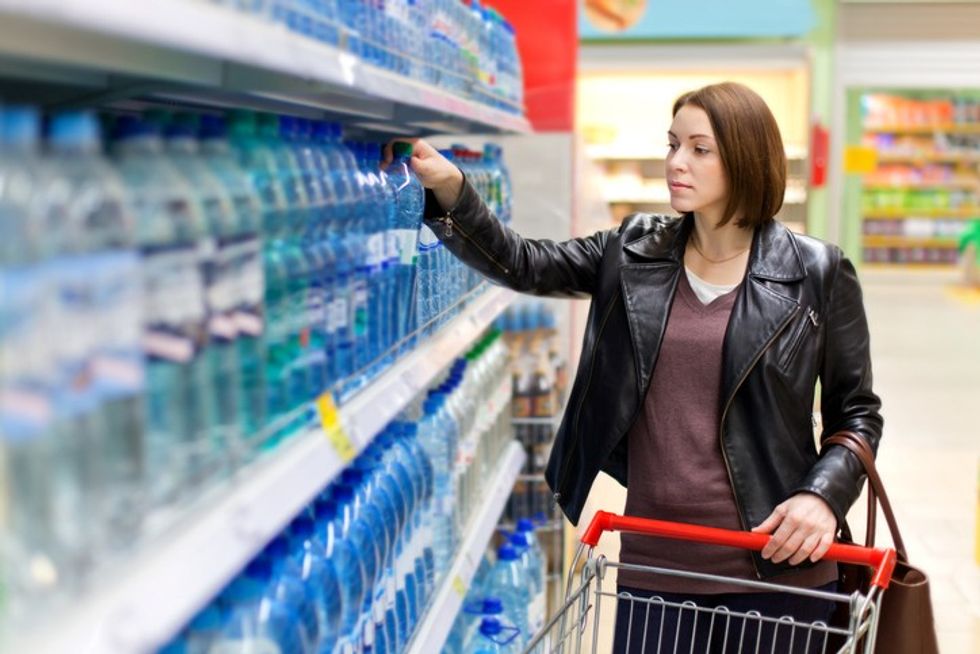
NEO WTR produced by Brookfield Drinks has launched the category’s first fully recycled ocean-bound plastic bottle with recyclable cap and label. NEO WTR has developed a bottle that can help to significantly slow the damage caused to marine life by ocean plastic pollution. Every 500ml bottle of NEO WTR stops the equivalent of 1.7 plastic bottles entering the ocean and is claimed to be made using discarded plastic that has been collected along coastlines at-risk of ocean plastic pollution.
Furthermore, the founder of anti-plastic campaigning soda brand GUNNA Drinks has announced the launch of a new brand, Water Almighty – the first aluminum bottled, functional water in the UK. Water Almighty will offer retailers and caterers two carbon-neutral aluminum-bottled functional waters. The brand is launching with one still and one sparkling water, both with seven added minerals and electrolytes (RRP £1.99 per 470ml bottle).
Fruit- and vegetable-infused sparkling water are also a great product line to stock, like Dash Water’s fruit- and vegetable-infused sparkling water in 750ml glass bottles. Dash Water uses wonky British fruit and vegetables that have been rejected by supermarkets to naturally infuse water with a dash of flavour, free from sugar and zero calories. Both raspberry and cucumber flavours are available in the new glass bottles.
Juices
Flavour ranks supreme in the world of juices with the most popular in the UK being orange juice. In 2022, almost two thirds of the market was held by orange juice. Only 12.5 percent of the market was held by apple juice, which was the second most popular fruit juice flavor by market share.
Juice drinks remain an important part of the soft drinks category, providing a refreshing, fruity option for people to enjoy alongside a meal or snack whilst at home or on the go. Within this, Oasis is the number one juice drinks brand in GB, worth £98.8m and growing in both value and volume.
Amy Burgess, Senior Trade Communications Manager at Coca-Cola Europacific Partners (CCEP), tells Asian Trader, “In 2023 we added to our zero-sugar line-up with the addition of Oasis Zero Exotic Fruits, a refreshing blend of passion fruit and mango with no sugar and no calories. Like the entire Oasis range, it is fully HFSS compliant.”
In 2022, Tropicana was the leading juice and smoothie brand in the UK by retail sales revenue while Innocent was the leading competitor. Other leading brands in this category are Rubicon, Vita Coco, Copella, Ocean Spray, Juice Burst, Cawston Press, Oasis, Capri-Sun, Robinsons, Ribena, Vimto and Naked.
The juice and smoothie industry have faced several challenges in the past year. The cost-of-living crisis has created pressures on real incomes that have taken their toll on the fruit juice market. Furthermore, concerns regarding both sustainability and sugar content continue to haunt this aisle.
Tropicana Rise & Shine and Tropicana Fruit Sensation are the new kids on the block here through which Tropicana aims at trading consumers up from private label juice that would allow the juice category to thrive outside of breakfast consumption occasions.
Tropicana has also expanded its offering in smoothies with the launch of Tropicana Kids Smoothies, available in two flavour varieties. The range, which comes in Pineapple & Mango and Strawberry & Banana flavours, has been designed for convenience and on-the-go snacking, providing a spill-free option.
Most recently, we saw a new brand identity launched by Tropicana amid the launch of a new Tropicana Special start range and new drink flavours.
The juice manufacturer has refreshed its packaging designs, featuring new fruit graphics that reincorporate the brand’s iconic red and white straw image. The rebranding marks Tropicana’s special start range which comprises of three 100 per cent pure pressed fruit juices-Sanguinello Blood Orange, Pink Grapefruit and Pineapple.
With the aim of reinforcing its position as ‘the brand of summer’, Rubicon has also announced a major new campaign, designed to drive shoppers to soft drinks’ chillers and fixtures. As part of Rubicon’s annual £4m investment, the Release the Sunshine campaign includes a brand-new TV advert, outdoor media in major cities across the UK, as well as digital and social media campaigns.
Own label brands, like Co-op's own-brand 100 percent Squeezed Orange Juice Smooth (£2 for one litre), are giving a good competition to leading juice brands, particularly when it comes to orange juices.
Soft Drinks
In the current economic climate, shoppers have been seeking to make their money go further, whether by choosing cheaper products or buying in larger formats and multi-packs. Post-pandemic, there has been increasing demand for lower-calorie products.
However, at the same time, taste remains the number one buying factor in this aisle. Overall, the cost-of-living crisis, health concerns and the continued quest for new and exciting tastes remain the key factors influencing consumer choice in soft drinks.
In 2023, the regular Coca Cola had the largest sales among soft drinks sold in convenience stores in the UK with a value of £780m sold through convenience channels, followed by Pepsi Max with sales of £637m.
According to NIQ (formerly NielsenIQ), Coca-Cola remains the number one soft drink in the total UK grocery market. Its sales rose by 7.2 per cent to hit almost £780m in the year to the end of June 2023, up from £727m last time around.
Second-placed Pepsi Max made up some ground on its rival with a sales increase of 13.5 per cent to just more than £637m, compared with £561m in the previous 12-month period. Diet Coke was likewise unmoved in third place.
Coca-ColaTM leads soft drinks in retail, led by Coca-Coca Zero Sugar (the fastest growing major cola brand in retail by value and volume), along with Fanta and Dr Pepper.
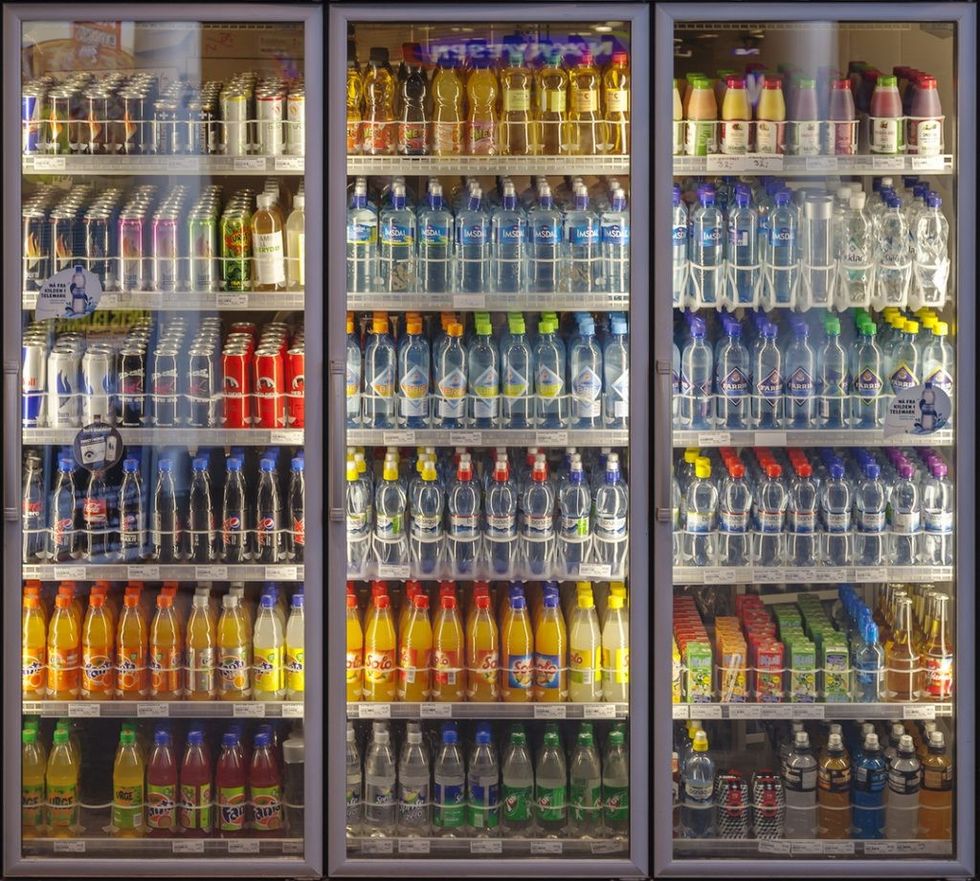
Burgess from CCEP advices retailers to also keep an eye out for the latest launches, including the newest addition to our Coca-Cola range - Coca-Cola Original Taste Lemon and Coca-Cola Zero Sugar Lemon - combining the iconic Coca-Cola taste with a zesty citrus kick, with and without sugar.
As the cost of living continues to bite, consumers are increasingly bringing the bar experience into their homes, crafting their own mixed drinks, making strong mixers range more important than ever.
Burgess from CCEP points out how consumers are pairing their favourite spirits with quality mixers like Schweppes, the number one mixers brand in the off-trade by volume. As a result, favourites like Schweppes Classic Tonic and Slimline Tonic are likely to be in high demand.
Premium adult soft drinks, such as Appletiser, deliver a more sophisticated alternative to alcohol for an at-home occasion, often used as a flavoured base for cocktails and mocktails, or in a mixed drink.
This category is always buzzing with new launches, something which in turn plays a huge role in attracting Gen Z to the store.
Like, the new limited-edition, Tango Blast which is in a ready-to-drink format and comes in Tango Raspberry Blast and Tango Cherry Blast flavours that will be available exclusively to the
convenience channel. Tango's latest launch aims to engage Gen Z shoppers with its “bold flavours, striking colours and eye-catching packaging”.
Free from artificial flavours or colours, Tango Blast is approved as vegan by The Vegetarian Society. Tango Raspberry Blast and Tango Cherry Blast will be available in a 500ml format only at an MRSP of £1.99, the flavours will also be available in packs of 12.
Nichols is also celebrating a year of innovation and newness across brands and all channels with Levi Roots Soft Drinks, Slush Puppie Fizzie and Vimto.
Furthermore, IRN-BRU XTRA is rolling out two limited-edition flavours to help retailers drive demand and build excitement ahead of summer. IRN-BRU XTRA Raspberry Ripple and Wild Berry Slush will both be available from March, launching in a 75p PMP can for impulse retailers and plain can single and multipack for grocery.
Retailers should make use of IRN-BRU XTRA Limited Editions vibrant, eye-catching point of sale material to create in-store theatre and attract shoppers to the fixture and drive their sales. A new soft drink brand called Ice will launch in the UK next month, with popular flavours made from natural ingredients. The brand promises consumers an “unparalleled taste experience with premium ingredients, delivering refreshing drinks of exceptional quality”. Flavours in the range include Classic Ice Cola, Lemon Ice, Orange Ice, Strawberry Ice, Citrus Ice, and Mango Ice.
Another new name to look out for in the soft drink section is Bizzi, that has recently launched in the country with a range of three ready-to-drink (RTD) cans. The range at launch consists of two cold brew coffee varieties and a matcha variety, all of which contain collagen. The supplier claims it is the first brand to offer a caffeine and collagen boost in the same can.
Flavoured milk
The total flavoured milk category in the UK is worth £585m. Across convenience, sales have grown by 18 per cent over the past year. Convenience sales now contribute 44 per cent of total category sales. Coffee and chocolate flavoured milk are the leading sub-categories.
Coffee-flavoured milk is the largest of these, worth £212m and growing by 16 per cent year on year. Chocolate-flavoured milk, the second-largest sub-category, is also performing well, with sales worth £125m.
Michelle Frost, general manager at Mars Chocolate Drinks and Treats (MCD&T) says, “Retailers can capitalise on this growing category by offering a selection of well-known brands.
Our on-the-go sports cap across the 350ml range makes them a popular choice for impulse shoppers.”
To cater for the growing popularity of coffee and chocolate flavoured drinks, MCD&T recently expanded its offering with the launch of Mars and Galaxy Mocha Lattes.
Frost tells Asian Trader, “We believe that the combination of the nation’s two favourite milk flavours with our distinctive brands and PMP packs added a new dimension to our range.”
Despite milk drinks being ambient, and therefore helping with stock control, they are best presented to shoppers in refrigerators, chilled and ready to consume immediately.
The MCD&T’s full 350ml range includes Mars, Mars Caramel, Maltesers, Milky Way, Twix, Snickers, M&M’s Brownie and Galaxy. All SKUs are suitable for vegetarians and have no added sugar.
Last year, MCD&T launched Mars and Galaxy milk drinks in a new 250 ml can format. With the rising interest in sustainable packaging, it is important for retailers to display a variety of formats to encourage consumers to make conscious choices within their purchases.
Burgess from CCEP also vouches for opportunities in fast-growing categories like energy and RTD coffee.
Burgess from CCEP says, “The ready-to-drink (RTD) chilled coffee sector has become an established part of the soft drinks category and continues to grow, up 12.5 per cent in convenience, with sales peaking during the summer months. Costa Coffee RTD is up 24 per cent in value in convenience over the past year8, growing ahead of the RTD chilled coffee segment.”
RTD chilled coffee is incredibly diverse. Featuring lattes, flat whites and frappés, Costa’s range caters to a broad variety of different tastes and occasions, offering shoppers a choice of low, medium and high intensity caffeine options as well as different coffee flavours and levels of sweetness.
Burgess adds, “At the beginning of the year, we launched PMP versions of the Costa Coffee Latte and Caramel Latte RTD ranges, offering a unique selling point exclusive to convenience retailers to help enhance their competitive edge when it comes to the RTD chilled coffee segment.”
Energy
It is impossible to overlook energy drinks in this section. Energy drinks continue to increase in popularity, now worth £1.95bn in GB and growing, thanks to the arrival of a sea of new flavours, functionality and zero sugar options.
Retailers must stock up on the latest launches to capture consumers’ attention. Monster is leading the way when it comes to innovation in energy as 60 per cent of NPD energy drink sales over the last year have come from the Monster brand.
Burgess says, “Since the start of 2024, we’ve grown our range with the launch of Monster Reserve Orange Dreamsicle and Monster Juiced Bad Apple. It follows on from the launch of Monster Zero Sugar in 2023 – arguably Monster’s biggest innovation in 20 years - offering the same iconic and full-flavoured taste of Monster Original but with zero sugar.
“Despite the emergence of new innovations, traditional energy drinks still remain popular, with Monster Original remaining our flagship offering, worth £126.6m in retail. This underscores the importance of maintaining a robust core product range alongside stocking new launches.”
Another one of the leading energy drinks to stock up on is Red Bull as well as Red Bull Sugar Free. Lucozade Sport has also been delivering a strong performance. So are Monster Energy Ultra and Dr Pepper.
Lucozade is also making some waves with its recent re-launch. Encompassing TV advertising, social, in-store activation, consumer sampling and more, “Bring the Energy” campaign is all about how Lucozade helps fuel people to rise to the challenge.
Following the recent launch of Blucozade, this new platform continues to unite its three key drinks - Lucozade Energy, Lucozade Sport and Lucozade Alert – bringing that infectious Lucozade energy to shoppers across the nation. The unifying brand platform was developed following two years of in-depth research involving speaking to over 6,000 consumers, which found that shoppers do not separate Lucozade Energy, Lucozade Sport and Lucozade Alert, but view them all simply as ‘Lucozade’.
Elise Seibold, Marketing Director at Suntory Beverage & Food GB&I comments, “Bring the Energy is a new era for us; an insight-backed move to bring all sub-brands together to strengthen the incredible power of our brand. With a multimillion-pound media investment backed by in-store activation and sampling, we’re making sure Lucozade is un-missable throughout this mega summer of sport – and beyond!
“Retailers should stock up on our full range of formats to ensure their chillers are ready to tap into these extra sales opportunities at every occasion.”
As part of this momentous brand relaunch, the Lucozade range has also undergone a fresh and fun redesign featuring an updated logo and packaging. This striking new look has been specially developed to capture the positive and energising essence of Lucozade on shelf, and resonate with long-standing fans while also standing out to new shoppers.
Functional drinks brand Boost Drinks also has unveiled a dynamic brand refresh, with eye-catching new packaging designed to leap off the shelf. The revised pack designs are poised to redefine the consumer experience whilst continuing to hero Boost’s great value proposition, offering high cash margins for trade partners and unrivalled value pricing for consumers.
Retailers and customers alike will witness a new Boost brand design and proposition in 2024, backed by a roll-out of fresh New Product Development across the brand’s Energy and Sport categories, supported by the creative, integrated campaign, “There’s a Boost For That”.
That's cool!
Energy drinks and cola are flying high, and we’ve also seen that adding interesting, limited-edition flavours into the mix can pay off in driving impulse sales when it comes to on-the-go formats.
Burgess from CCEP says, “Research shows merchandising food and drink together can double shopper engagement and increase sales by up to 32 per cent. Stocking sharing packs of soft drinks alongside meals and snacks can help shoppers grab everything they need for a summer BBQ or picnic.
“Almost one-third of soft drink shoppers in convenience are on a food-to-go mission, so displaying single cans and bottles in chillers next to sandwiches can drive incremental sales.”
Increasingly, Brits are paying attention to their diets and are on the lookout for specific ingredients and functional additions to their drinks such as minerals, vitamins or fruit extracts. So it is best to keep bringing health-centric offers to keep shoppers engaged and curious.
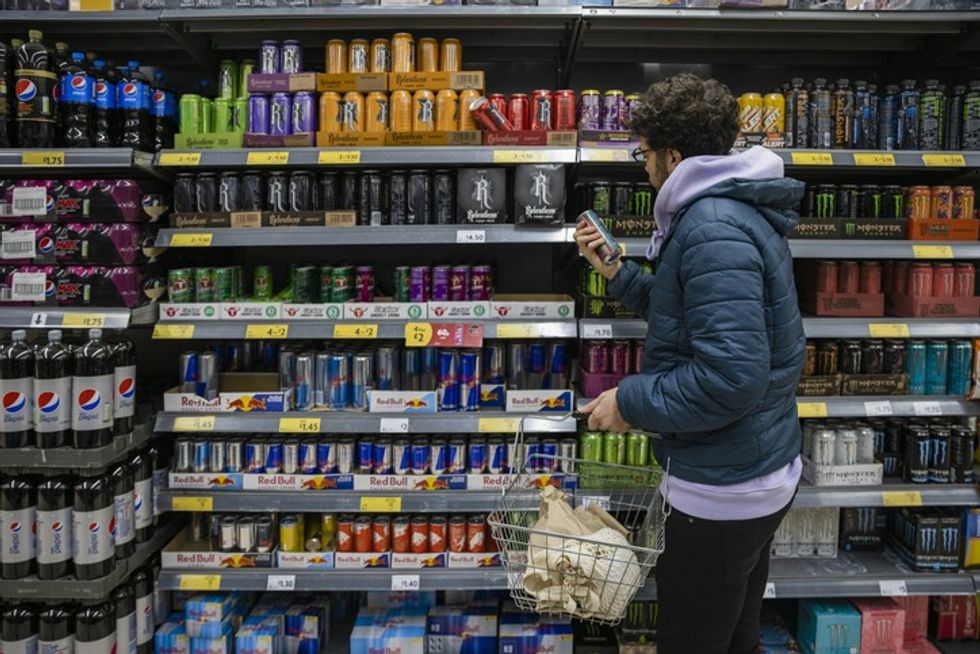
It’s vital that retailers stay on top of these trends by updating their soft drinks ranges and merchandising to cater for different need states and missions, such as on the go or food to go occasions, or top up shops.
Convenience retailers must be alert to the budget pressures of these customers and adapt their soft drinks ranges accordingly to offer more value-friendly options. Retailers can meet these shopper needs by stocking market leading brands in added-value pack formats like Pepsi MAX six-pack PMP.
“Lipstick effect’ is also into play, where shoppers are switching from expensive purchases to treating themselves with small indulgences. This presents opportunities for retailers to take advantage of shoppers on a treating mission.
To catch shoppers’ attention and boost impulse purchase, stores should have dedicated "refreshment stations" near the entrance or checkout area where customers can quickly grab chilled soft drinks and juices. Use attractive displays and signage to draw attention to these stations.
Offer special promotions or bundle deals that include soft drinks or juices with other summer essentials, such as snacks, sunscreen, or outdoor accessories. This encourages customers to purchase multiple items at once.
Create themed promotions or events centered on summer activities, such as BBQs, picnics, or beach outings. Offer discounts or giveaways on soft drinks and juices as part of these promotions to increase sales.
Bring it on
A little thought can go a long way in boosting sales in this aisle and thus in creating a unique brand image for the store.
In the current economic climate, shoppers have been seeking to make their money go further, whether by choosing cheaper products or buying in larger formats and multi-packs. For every degree Celsius increase in temperature, between 18-24 degrees, there is seen a four times growth in soft drink sales.
Hosting sampling events where customers can try out different soft drink and juice flavors for free or at a discounted price ban prove to a highly effective way to unlock sales in this category. This gives them an opportunity to taste new products and encourages them to make a purchase.
Most importantly, ensure that your soft drinks and juices are properly chilled, especially during hot summer days. As the mercury rises, make sure to create more space in the store to quench your shoppers’ thirst.






